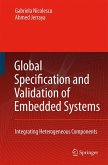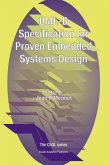Specification and design methodology has seen significant growth as a research area over the last decade, tracking but lagging behind VLSI design technology in general and the CAD industry in particular. The commercial rush to market tries to leverage existing technology which fuels CAD design tool development. Paralleling this is very active basic and applied research to investigate and move forward rational and effective methodologies for accomplishing digital design, especially in the field of hardware/software codesign. It is this close relationship between industry and academia that makes close cooperation between researchers and practitioners so important-and monographs like this that combine both abstract concept and pragmatic implementation deftly bridge this often gaping chasm. It was at the IEEE/ACM Eighth International Symposium on Hardware/Software Codesign where I met the author of this monograph, Dr. Randall Janka, who was presenting some of his recent dissertation research results on specification and design methodology, or as he has so succinctly defined this sometimes ambiguous concept, "the tools and rules." Where so many codesign researchers are trying to prove out different aspects of codesign and using toy applications to do so, Dr. Janka had developed a complete specification and design methodology and prototyped the infrastructure-and proven its viability, utility, and effectiveness using a demanding real-world application of a real-time synthetic aperture radar imaging processor that was implemented with embedded parallel processors.
Bitte wählen Sie Ihr Anliegen aus.
Rechnungen
Retourenschein anfordern
Bestellstatus
Storno








